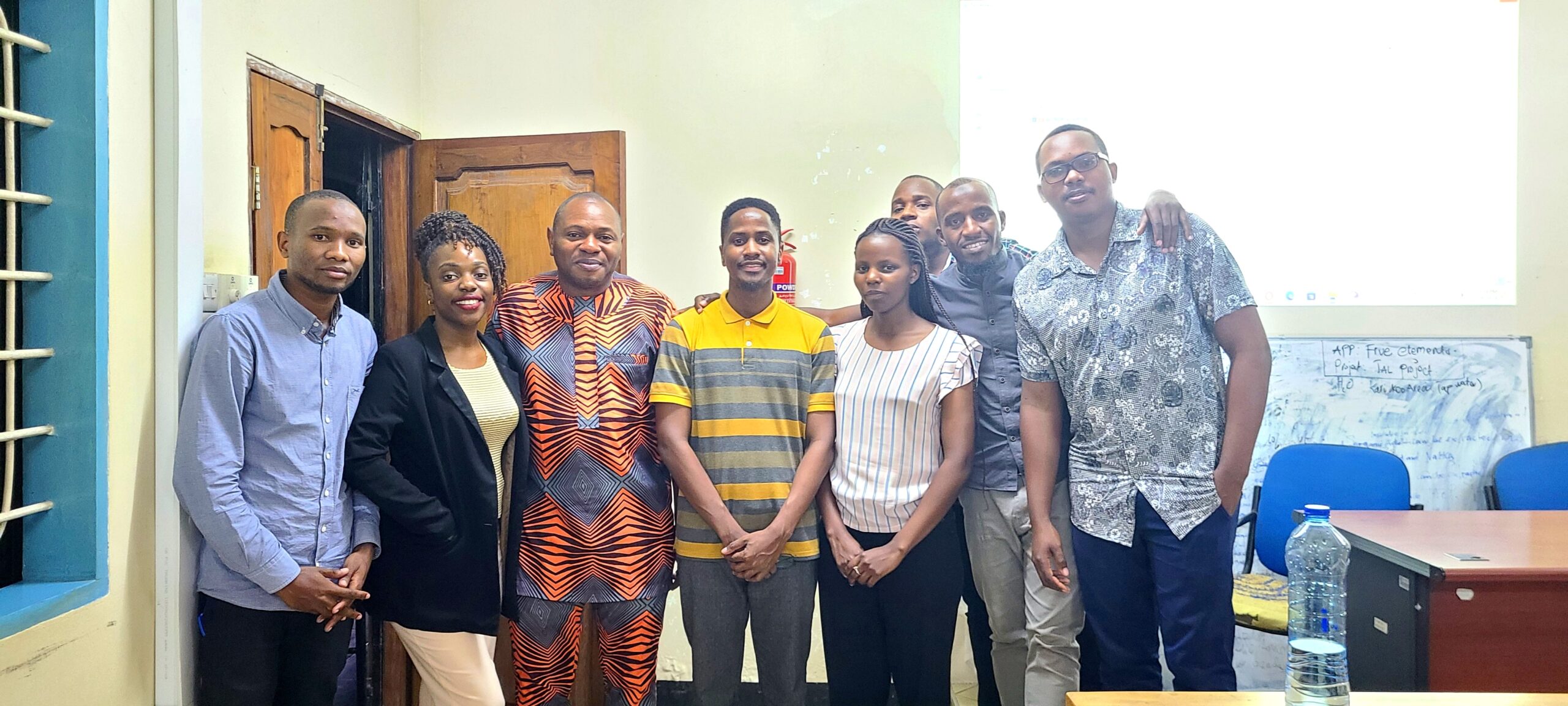Feed
-
OpportunityNotice of Funding Opportunity: Tanzania Digital CollaborationGrant Size: $100,000 to $500,000 Donor: US Mission to Tanzania The U.S. Embassy Dar es Salaam/Bureau of African Affairs of the U.S. Department of State announces an open competition for organizations to submit applications to carry out a program to create targeted exchange programs and a conference aimed at relevant Tanzanian policymakers, civil servants, and civil society to explore internet governance structures and strategies that promote a free and open internet governance policy in Tanzania to catalyze the expansion of the local digital economy and lead to economic growth. This opportunity seeks to directly engage a Tanzanian civil society organization to identify a cohort of colleagues across a range of sectors, engage the cohort through multiple education and information sessions, and organize a major international conference on the theme of building resilient, open, and democratic digital systems. The conference should include U.S. experts who can advise on regulatory firewalls, policy creation and coordination, and balancing the protection of individual rights, general online safety and security with freedom of expression principles. The selected organization should have demonstrated familiarity with Tanzania’s civic space and policy processes. https://grants.gov/search-results-detail/355559By: Tony MilanziFriday, Aug 16, 2024CULTURE AND SOCIETY
No Preview Available -
OpportunityERG Research Grant Programme in LICsGrant Size: $10,000 to $100,000 The Private Enterprise Development in Low-Income Countries (PEDL) is pleased to announce applications for the Research Grant Programme that aims to better understand what determines the strength of market forces driving efficiency in low-income countries (LICs). Existing research suggests that the private sector in LICs faces a multitude of constraints that act upon each other. What is needed is research that allows them to understand how these constraints interact. ERGs are grants of between £10,000 and £40,000. These grants will fund research assistance, data collection and new surveys in LICs, and (if necessary) teaching buyouts for the principal investigator. Please note that cost effectiveness and value for money are important evaluation criteria. Eligibility Criteria ERGs are designed to allow researchers to: Explore new approaches to the study of firms in LICs; and To develop new (or build on) existing sources of data on firms in LICs. https://pedl.cepr.org/content/38th-regular-erg-call-open-deadline-19th-august-2024By: Tony MilanziFriday, Aug 16, 2024CULTURE AND SOCIETY
No Preview Available -
OpportunityCFAs: FRIAS Early Career Fellowships ProgrammeGrant Size: Fellowship The Freiburg Institute for Advanced Studies (FRIAS) is inviting applications for its Early Career Fellowships Programme to support academic exchange across existing boundaries between disciplines, between different cultures and countries, between established and younger researchers. https://www.frias.uni-freiburg.de/en/news/call-for-applications/frias-early-career-fellowship-programmeBy: Tony MilanziFriday, Aug 16, 2024CULTURE AND SOCIETY+1
No Preview Available -
OpportunityFRIAS Sustainable Governance Senior Fellowships for ResearchersGrant Size: Fellowship Donor: Freiburg Institute for Advanced Studies (FRIAS) The Freiburg Institute for Advanced Studies (FRIAS) is seeking applications for the Sustainable Governance Senior Fellowships to support innovative research projects through individual and group fellowships. The Freiburg Institute for Advanced Studies (FRIAS) is the University of Freiburg’s international research college. The Institute supports academic exchange across existing boundaries between disciplines, between different cultures and countries, between established and younger researchers. FRIAS provides modern office spaces and an up-to-date infrastructure and makes every effort to provide tailor-made solutions with regard to suitable accommodation, child care and educational facilities. https://www.frias.uni-freiburg.de/en/news/call-for-applications/frias-sustainable-governance-senior-fellowship-from-africaBy: Tony MilanziFriday, Aug 16, 2024CULTURE AND SOCIETY+1
No Preview Available -
OpportunityCFAs: Carnegie African Diaspora Fellowship ProgramGrant size: less than $1000 Donor: Institute of International Education (IIE) The Institute of International Education's Carnegie African Diaspora Fellowship Program (CADFP) is a scholar fellowship program for educational projects at African higher education institutions. The program is funded by a grant from Carnegie Corporation of New York (CCNY). A total of 705 African Diaspora Fellowships have been awarded for scholars to travel to Africa since the program’s inception in 2013. CADFP exemplifies CCNY’s enduring commitment to higher education in Africa. IIE manages and administers the program, including applications, project requests and fellowships. https://www.iie.org/programs/carnegie-african-diaspora-fellowship-program/By: Tony MilanziFriday, Aug 16, 2024CULTURE AND SOCIETY+1
 No Preview Available
No Preview Available -
OpportunityCFAs: Supporting African Science and Tertiary Education (SASTE) GrantGrant Size: $1000-10,000 Donor: Agency for Education and Internationalisation The Supporting African Science and Tertiary Education (SASTE) Grant support post-docs from Sub Sahara Africa working in the field of Agriculture, Forestry, Water Management, Renewable Energies, Nutritional Science, Human and Veterinary Medicine for a research stay in Austria. https://oead.at/de/aktuelles/artikel/2024/07/call-for-application-supporting-african-science-and-tertiary-education-saste-grant-3rd-callBy: Tony MilanziFriday, Aug 16, 2024AGRI-FOOD SYSTEMS+1
No Preview Available -
OpportunityWellcome Career Development Awards for ResearchersGrant Size: 100,000 -500,000 Donor: Wellcome Wellcome's Career Development Awards provides funding for mid-career researchers from any discipline who have the potential to be international research leaders. They will develop their research capabilities, drive innovative programmes of work and deliver significant shifts in understanding related to human life, health and wellbeing. You can apply for a Wellcome Career Development Award if you are a mid-career researcher and you are ready to lead a substantial and innovative research programme. You must aim to make a key contribution to your field by: generating significant shifts in understanding developing methodologies, conceptual frameworks, tools or techniques that could benefit health-related research. https://wellcome.org/grant-funding/schemes/career-development-awardsBy: Tony MilanziFriday, Aug 16, 2024HEALTH AND NUTRITION
No Preview Available

Leave a comment